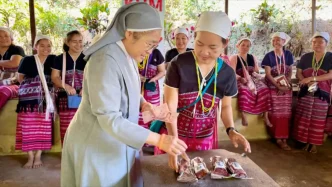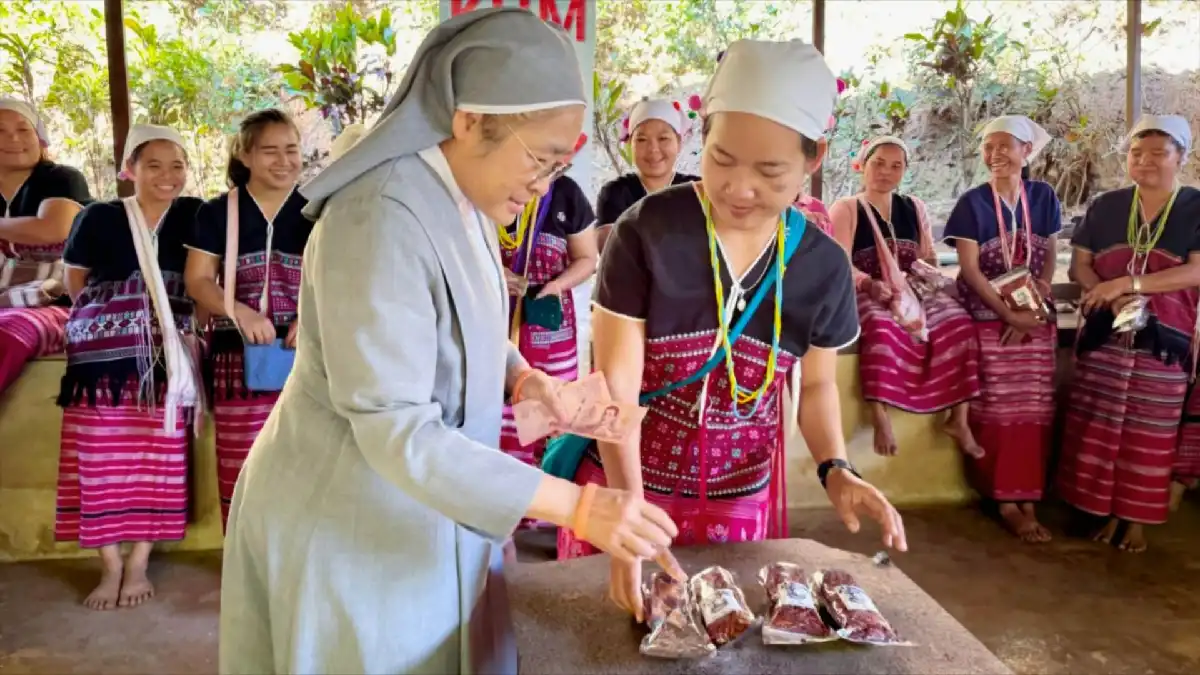On June 5, 2025, Sr. Marie-Agnes Suwanna Buasap, a Thai Catholic nun, received a prestigious award from Thailand’s Ministry of Social Development and Human Security for her relentless fight against human trafficking. The ceremony, held in Bangkok on National Anti-Human Trafficking Day, celebrated her “courageous, creative, and sustained” efforts to protect vulnerable communities, particularly women and children, in Thailand’s remote northern regions. Her recognition underscores the vital role of faith-driven grassroots initiatives in confronting one of the world’s most persistent human rights challenges.
A Persistent Crisis in Thailand
Thailand remains a significant hub for human trafficking, serving as a source, transit, and destination country for victims of forced labor and sexual exploitation. The 2024 Trafficking in Persons Report by the US State Department places Thailand on Tier 2, acknowledging government efforts but noting that it falls short of minimum standards for eliminating trafficking. An estimated 280,000 people are victims of modern slavery in Thailand, with many being migrant workers from Myanmar, Cambodia, and Laos, as well as Thai nationals. Recent events, such as the repatriation of 260 trafficking victims from Myanmar in February 2025, highlight the scale of the problem (Reuters, 2025).
Corruption and official complicity exacerbate the crisis, with reports of law enforcement officers accepting bribes to facilitate trafficking across borders. Despite legislative measures, such as the 2008 Anti-Human Trafficking Act and recent Cabinet notifications aimed at preventing forced labor, enforcement remains inconsistent. Sr. Marie-Agnes’s work stands out as a beacon of hope in this challenging landscape, addressing gaps left by systemic failures.
Sr. Marie-Agnes’s Grassroots Approach
A member of the Sisters of St. Paul de Chartres, Sr. Marie-Agnes has pioneered community-based initiatives that focus on education, empowerment, and resilience. Her programs have had a transformative impact in Thailand’s northern border regions, where poverty and proximity to porous borders heighten trafficking risks. Key achievements include:
Key Initiatives by Sr. Marie-Agnes Suwanna Buasap
| Initiative | Description | Impact |
|---|---|---|
| Teacher Training | Trained 3,182 teachers across 35 schools in anti-trafficking education | Reached over 60,000 students |
| Youth-Led Campaigns | Supported awareness campaigns in northern border regions | Increased community awareness |
| Talitha Kum Kids Networks | Established advocacy networks in schools | Fostered long-term advocacy |
| Livelihood Programs | Launched chili-based product production for women in three villages | Improved family incomes |
| Community Workshops | Deployed 40 volunteers to lead workshops for 800+ women | Enhanced skills and resilience |
Her approach is deeply rooted in building trust within communities, a principle she emphasized in an interview with LiCAS News: “To fight trafficking, we must become deeply integrated in the communities we serve. Building trust is essential.” She also tied her mission to the Catholic Church’s Jubilee Year 2025, stating, “This Jubilee Year, we are called to be Pilgrims of Hope—bringing hope to those living on the margins, especially young women at risk of exploitation.”
The Talitha Kum Movement
Sr. Marie-Agnes’s work is part of the Talitha Kum movement, a global network of women religious dedicated to combating human trafficking. Founded in 2009 by the International Union of Superiors General, the movement—named after Jesus’ words in the Gospel of Mark, “Maiden, I say to you, arise”—operates in over 90 countries. It collaborates with local communities, governments, and NGOs to rescue victims, provide support, and advocate for systemic change. In Thailand, Talitha Kum’s efforts are particularly vital in addressing the exploitation of women and children in border regions.
Sr. Marie-Agnes credited the support of her congregation and the wider Church for sustaining her mission. “This work is never done alone,” she said. “It’s the fruit of shared commitment, faith, and compassion.”
Global and Local Challenges
The global fight against human trafficking faces significant hurdles. The United Nations reported an 11% decline in trafficking-related crime detection and a 27% drop in convictions in 2020, with developing nations like Thailand particularly affected. Locally, Thailand’s northern regions are hotspots for trafficking due to economic disparities and cross-border migration. The fishing industry, entertainment sectors, and online scam operations in neighboring countries further complicate efforts to curb exploitation.
Other faith-based groups were also recognized at the June 5 ceremony, including Stella Maris, the seafarers’ ministry of the Chanthaburi Diocese, which works to rescue trafficked fishers. These efforts highlight the critical role of religious organizations in filling gaps left by government initiatives. However, experts caution that without stronger enforcement and anti-corruption measures, grassroots actions alone cannot fully address the systemic nature of trafficking.
A Beacon of Hope
Sr. Marie-Agnes’s national award is a testament to the power of faith-driven action in confronting human trafficking. Her work not only provides immediate support to vulnerable communities but also builds long-term resilience through education and economic empowerment. As Thailand grapples with its role in the global trafficking network, her initiatives offer a model for how localized, community-centered approaches can drive meaningful change.
Her recognition comes at a pivotal moment, as the world seeks to reinvigorate efforts against modern slavery. By honoring Sr. Marie-Agnes, Thailand acknowledges the indispensable role of individuals and faith-based organizations in this fight, even as broader systemic challenges persist.















